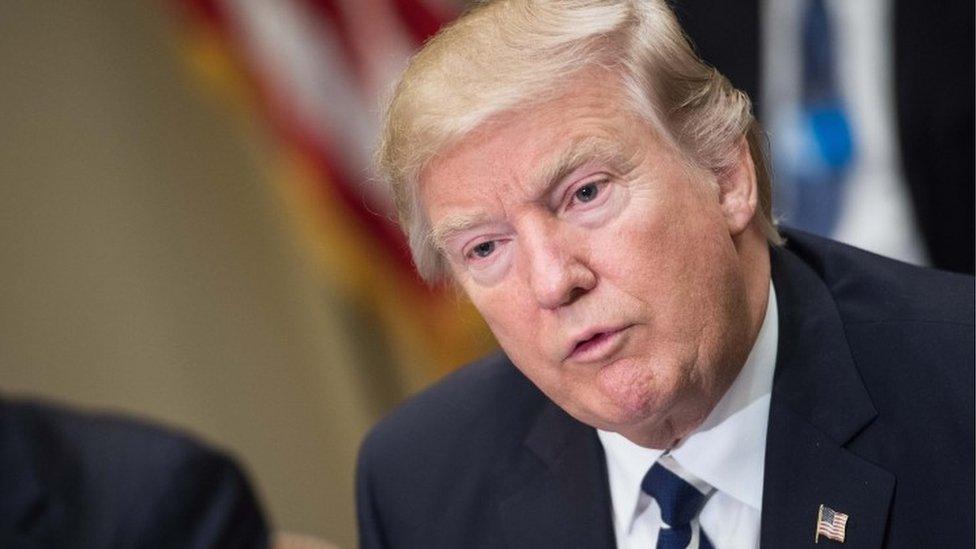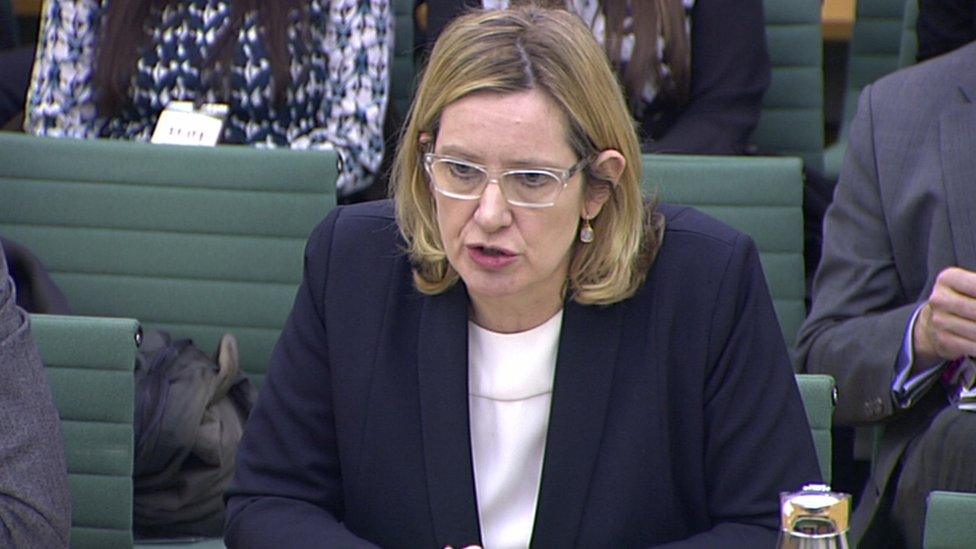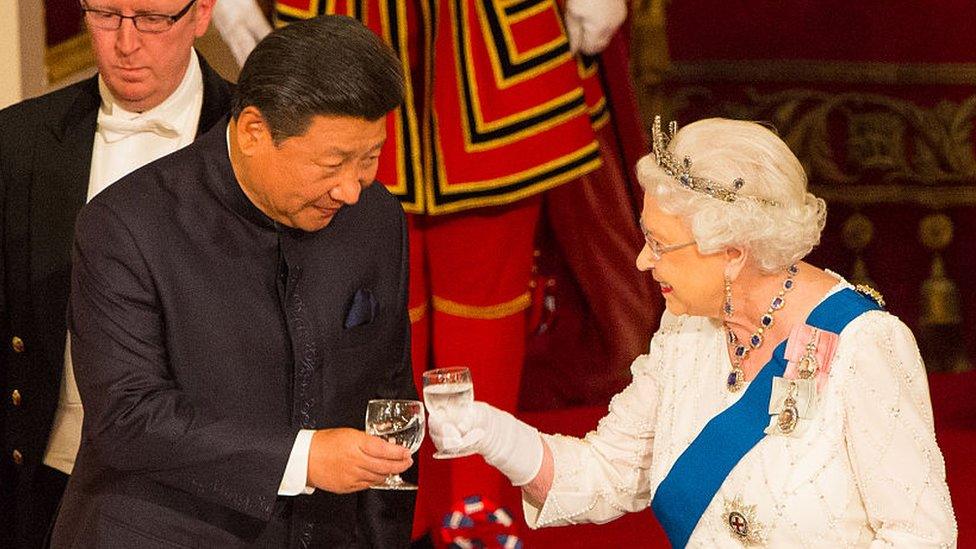Amber Rudd: Trump travel ban could help IS
- Published
- comments

Donald Trump's US travel ban on people from seven mainly Muslim countries could become a "propaganda opportunity" for so-called Islamic State, the UK's home secretary has warned.
Amber Rudd called the president's move "divisive" and "wrong".
Meanwhile, MPs are to hold a debate on the government's offer of a full UK state visit for Mr Trump.
This comes after a petition calling for the invitation to be revoked gained more than 1.7 million signatures.
A rival petition, arguing that Mr Trump's trip should go ahead, has attracted more than 150,000 supporters.
The president's temporary ban on nationals from Iraq, Syria, Iran, Libya, Somalia, Sudan and Yemen entering the US has prompted strong criticism from many UK politicians.
Appearing before the Home Affairs Committee, Ms Rudd said the order did not equate to a "Muslim ban", but she added that Islamic State (IS) would "use any opportunity they can to make difficulties, to create the environment they want to radicalise people, to bring them over to their side. So it is a propaganda opportunity for them, potentially."
She said: "I think the important thing is for this government to state that we disagree with the ban and we have said that it is divisive, it is wrong. I will continue to say that."
Demonstrations against Mr Trump took place in cities around the UK on Monday and Ms Rudd said she had told US Homeland Security Secretary John Kelly of the "difficulties and the response that was taking place in London and across the country".

Amber Rudd said she had raised concerns with the Trump administration
Asked about Ms Rudd's comments, a Downing Street spokesperson said: "We have been very clear that we believe this policy is divisive and wrong."
It was "clear" that IS would "twist any policy from any government for their own propaganda purposes", they added.
Prime Minister Theresa May, who met Mr Trump last week, has invited the president for a state visit - the highest honour accorded to foreign leaders - with no date yet announced for it.
But support for a petition calling for Mr Trump's visit to be downgraded from a state visit, which usually includes a ceremonial welcome and a state banquet, soared after the president announced his travel ban on Friday.
The Commons debate on this, on 20 February, will also take in the second petition, saying "the leader of a free world" should not be "gagged".

Analysis

George Osborne was keen to use Xi Jinping's state visit to bolster UK-China economic ties
By James Landale, BBC diplomatic correspondent
A state visit is the ultimate weapon of British diplomacy, the bunker buster of soft power that can break down the hardest of tyrannical hearts.
Few world leaders can resist the siren lure of all that royal bling: horse-drawn coaches, state banquets, processions down the Mall, the sheer scale of all that gold leaf and pomp and flummery that allows them a brief window into a royal fantasy that many countries envy but can rarely match.
This weapon is deployed sparingly, normally no more than twice a year. But it does get used.
State visits are not merely ceremonial affairs, they are political and purposeful. They are used by the British government of the day to further what they see as Britain's national interests.

Earlier on Tuesday, Lord Ricketts, permanent secretary at the Foreign Office from 2006 to 2010, said it was unprecedented for a US president to be invited for a state visit in their first year in the White House.
In a letter to the Times he added: "It would have been far wiser to wait to see what sort of president he would turn out to be before advising the Queen to invite him. Now the Queen is put in a very difficult position."
Labour leader Jeremy Corbyn has called for the state visit to be postponed.
But Downing Street has insisted the visit will go ahead, saying the "special relationship" between the UK and the US allows for "frank conversations at all times".
The Trump administration denies its travel ban amounts to a ban on Muslims entering the US.
Once a petition gains the backing of 100,000 names, Parliament's Petitions Committee must consider debating the issue.
The anti-state visit petition is the second most supported since the online system was set up, behind one calling for a second referendum on EU membership, which received the backing of 4,150,260 people.
The Commons held a separate emergency debate on Monday on Mr Trump's immigration policy.
A year ago MPs debated a 574,000 signature petition calling for Mr Trump - who was then fighting to become Republican presidential candidate - to be banned from the UK.